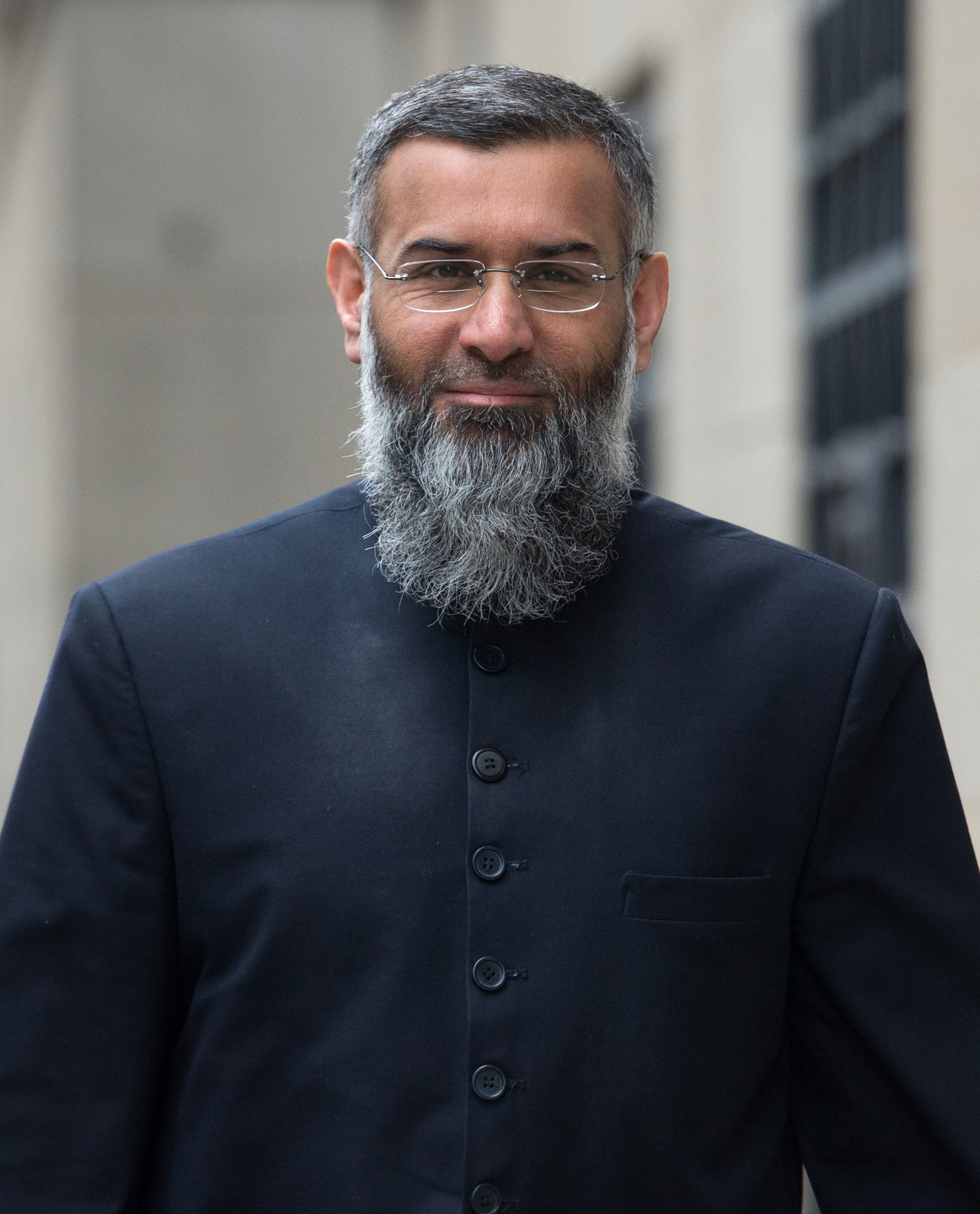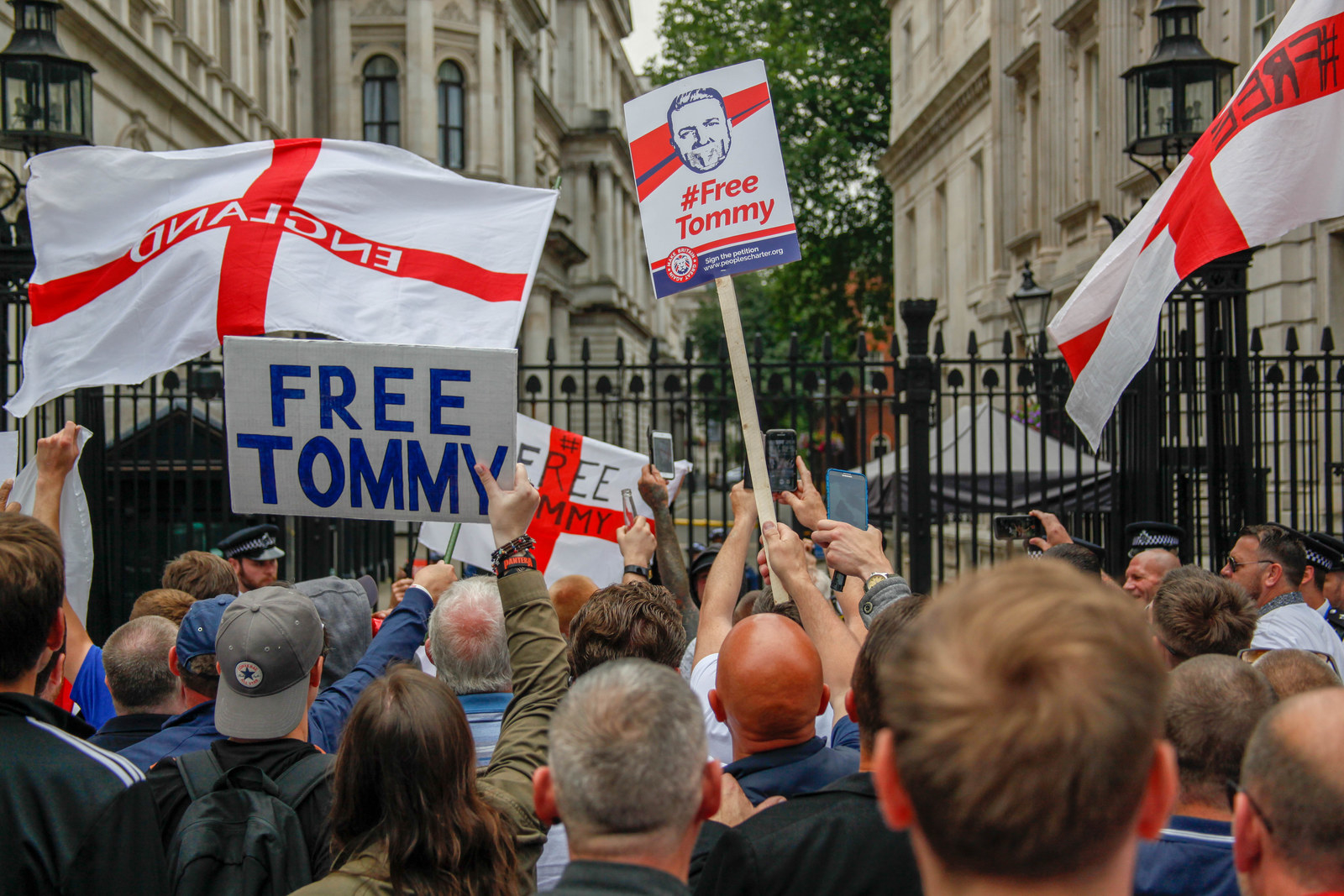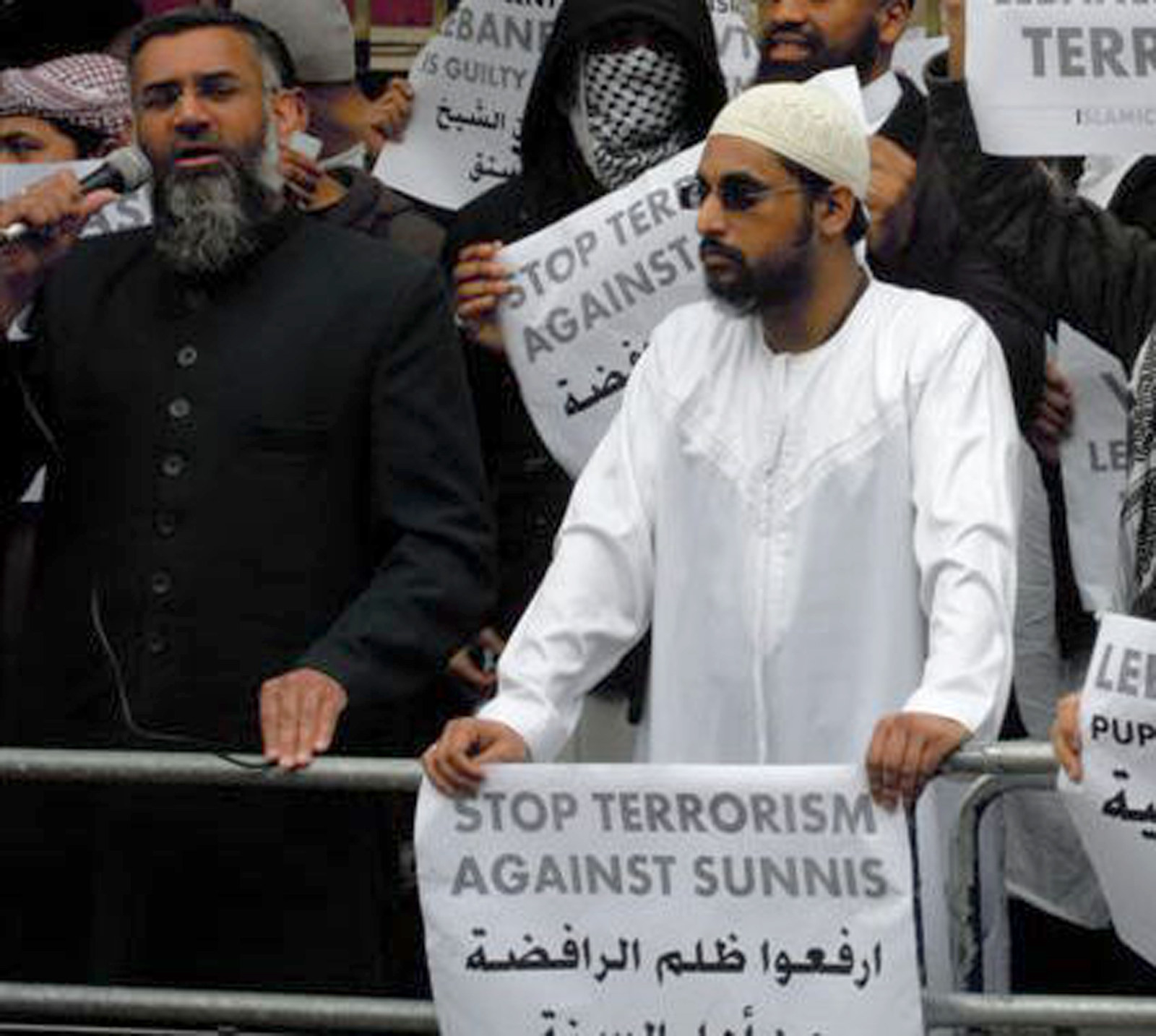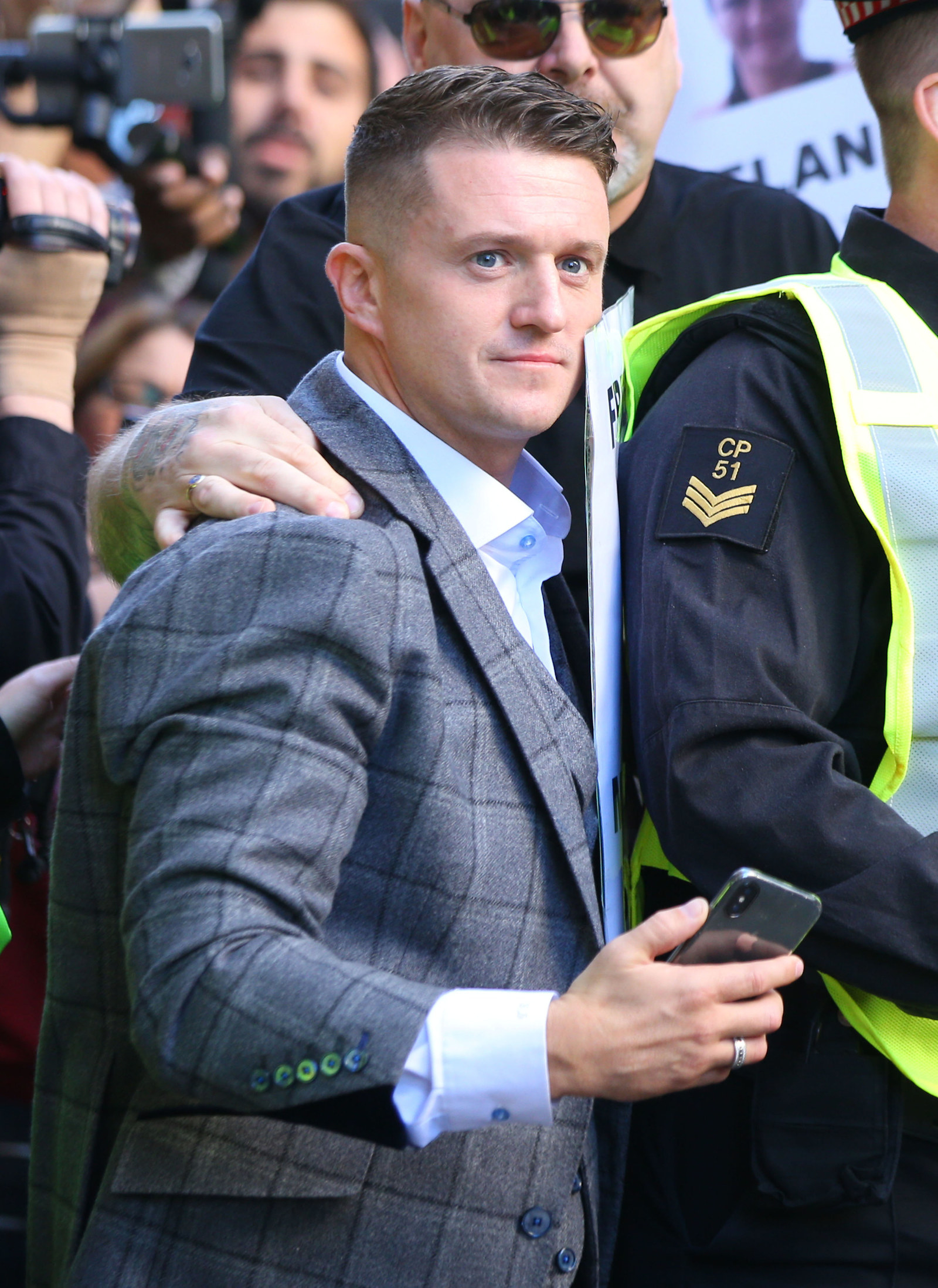
One of the most dangerous men in the UK was released on licence on Friday.
With some restrictions on his movement and associations, Anjem Choudary, the notorious radical Muslim cleric and former leader of a banned terrorist organisation, has been released halfway through the sentence of five years and six months he was handed in 2016 for inviting support for the ISIS. He will serve the rest of the sentence on licence, living at an undisclosed location. He is banned from making any public statements.
Choudary cofounded the banned jihadist organisation al-Muhajiroun in the early 2000s, and built up a media profile on the basis of controversial statements including calling the Sept. 11 attackers “magnificent”, blaming the Islamist murder of a British soldier, Lee Rigby, on British foreign policy, and claiming he wanted to see the “flag of Allah” fly over 10 Downing Street.
A lot has happened in his absence. Hate crime has increased in the UK in the wake of the EU referendum and multiple terror attacks; Jeremy Corbyn’s Labour party is embroiled in a bitter row over anti-Semitism among some far-left supporters; Donald Trump is in the White House, having introduced a Muslim travel ban and attacked immigrants in myriad other ways, while far-right movements and autocratic leaders have gained ground across parts of Europe.

Another change is the growth of the far right. Bolstered by the growth of white nationalism in the US and Europe, Stephen Yaxley-Lennon, the man known as Tommy Robinson, a former football hooligan and former leader of the English Defence League, has risen to prominence. A man with multiple criminal convictions, he has become a media personality, a cause célèbre for the conspiracy theory–driven hard right in the UK, US, and Canada.
Robinson can inspire thousands to turn up to rallies, such as those calling for his release from prison, where he most recently spent four months for a charge of contempt of court for filming outside a trial at Leeds crown court (he was freed on bail after the Court of Appeal intervened, and his retrial takes place next week).
Choudary’s release and Robinson’s rise to global attention raise the question of how radical Islam and the anti-Islam far-right interact and feed off each other to widen Britain’s extremist fringe.
In theory the two sides exist to oppose each other — but do they in fact need each other to survive?
What do Choudary and Robinson have in common?
“We launched research in 2013, criticising both Islamist extremists and the far right for how they used one another, needed one another, and brought misery to communities,” says Nick Ryan, head of communications at the anti-racism campaign group Hope Not Hate.
“They all need to reflect a certain messaging, whether it’s the Choudary types or the Robinson-Lennon types. They’ve got a common victimhood status, they’ve got a common enemy — the media, the establishment. And they have the troll army who can be whipped up.
“Victimhood status is very important to all extremists. Choudary sets himself up as the voice of the downtrodden Muslim, who’s against the government, the colonists running these expansionist wars.
“But on the extreme right, in anti-Muslim networks, they’re also talking about white identity being oppressed and feminists taking over — they’re emasculated.”
There is, Ryan says, a “symbiotic” relationship between radical Islam and the anti-Islam right. A commonly held view among Robinson supporters is the existence of “no go” areas of Muslim-dominant communities in the UK, where Sharia law rules. This is thought to be at least partly due to a misinformation campaign led by Choudary supporters and sympathisers some years ago, in which stickers were placed on lampposts declaring neighbourhoods to be alcohol-free.

A Wall Street Journal article, by an editor of the Quillette website, in August repeated this myth, telling readers that a section of east London was booze-free and under the control of local Muslims, citing a public order notice.
A subsequent correction on the article notes that such alcohol restriction orders are commonplace across the country, relate to street drinking, and have nothing to do with Muslims. Several locals observed on Twitter that the section supposedly off-limits to non-Muslims and drinkers was home to at least one trendy bar.
But just as the media can help perpetuate extremists’ myths, so it is something both sides attack relentlessly.
“The media has become, in this post-Trump world, part of the oppositional narrative of all extremist groups,” Ryan says. “Journalists become the enemy, and the more deeply they probe and investigate, the more the extremist leaders attempt to paint them as ‘tainted’, as ‘fake news’, and as Trump himself tries to claim, ‘enemies of the people’.”
After appearing on Sky News in September, Tommy Robinson then posted what he referred to as the full, “unedited” version of the interview on his Facebook page. Robinson said in a post announcing this footage: “Watch this and then watch the 8 minutes they edited it to. It’s actually embarrassing how fake news these media scumbags are. This guy is absolutely clueless.”
And as Ryan points out, the real-world impact of all this is significant: In 2016, member of parliament Jo Cox was killed by a far-right terrorist who searched online for white supremacist and Nazi content; Darren Osborne had, according to evidence heard in court, become radicalised in part through reading statements from Robinson and others, before he drove his van into a crowd of worshippers outside a mosque in Finsbury Park, north London, killing one, in 2017.
How do Choudary and Robinson influence each other?
Choudary played a key role in Robinson’s emergence as an anti-Muslim activist.
Robinson was, like the rest of the world, shocked by the Beslan massacre in southern Russia in 2004. During that bloody siege 334 people were killed, including 186 children, by Islamist militants including Chechen nationalists.
Robinson told an interviewer in 2015 he had read a media report at the time in which some young Muslims from his native Luton had said the attack was justified.
The report mentioned al-Muhajiroun — then an obscure Salafist extremist group – and its then-leader, Anjem Choudary. The report mentioned that al-Muhajiroun held a conference in 2002 praising the 9/11 attackers, titled “The Magnificent 19”.

“And for me that was mental. Shocking. The more I looked, the more fucking worried I got about this group,” he said.
There would go on to be clashes between the pair. Robinson’s hometown of Luton was home to a prominent cell of al-Muhajiroun, the banned jihadist organisation which Choudary ran. Its stunts infuriated former British National Party member Robinson, who was involved in protests against it that eventually gave birth to the the English Defence League, the anti-Islam organisation he went on to lead.
“Not only are they feeding off each other, they help sustain the existence of each other, effectively,” says Qari Asim, chair of the Mosques and Imams National Advisory Board, and also an imam at a mosque in Leeds. “Both of them, far-right extremists and Islamist extremists, they use similar tactics to radicalise.” The similarities between the two are plentiful, he argues.
“They both use their own personas and their own charisma, both are articulate and are able to connect with people. It’s a combination of the substance and also their very appealing rhetoric and approach they use to exploit young, impressionistic followers.”
A common trope of charismatic extremists on all sides, Asim tells BuzzFeed News, is to focus on legitimate issues — real grievances that people feel strongly about and that are part of the national debate — but to distort this through a lens of hatred.
“So with Robinson, immigration is a real issue, but [he is] talking about it at the expense of dehumanising a particular community,” he says.
“And for Choudary, there were national issues he was talking about, but also dehumanising the indigenous community, or [he was] portraying a utopian world that would solve all the problems, social and political issues that young people might be experiencing in deprived communities.”

Asim notes that the radical Islamic preacher comes out of prison into a very different Britain to the one of two years ago: “The difference is that some of the divisive and toxic rhetoric that he used to spout has been legitimised by the EU referendum vote — the temperature of hatred and hostility towards minority communities is now at a much higher degree.
“So as a result there are concerns that the far right will actually provoke Choudary and some of his followers, who have been quiet over the recent past, to do things that are harmful to our society. I hope we don’t get that.
What role does the media play?
As for what happens now, experts warn that the risks of normalising extremism are greater than ever. Media exposure made Choudary a well-known personality and generated the exposure that tipped many into not just radical Islam, but far-right extremism.
Speaking on Newsnight earlier this month, one former EDL activist cited Choudary and his many media appearances as the reason he became involved in anti-Muslim activism.

Danah Boyd, founder of the Data and Society research institute, in an article advising journalists on how to report on extremism, outlined the way extremists gain media attention: Firstly, create a spectacle, perhaps by saying something outlandish; then frame that spectacle through phrases that will drive your potential supporters to find you through social media or search engines; then become what she calls a “digital martyr”.
In Choudary’s case, again and again, it worked. Hope Not Hate cites, for example, the 2010 incident when he proposed to march through Wootton Bassett, a town that had become associated with military funeral repatriations. The charity quotes Choudary as saying: “By Monday Gordon Brown was talking about it in parliament […] by about Tuesday or Wednesday the whole of our methodology was printed verbatim on the BBC website. I had written a letter to British soldiers and the whole letter was printed in the Guardian.”
“We must not give exposure to Robinson or to Choudary,” says Fiyaz Mughal, founder of the charities Tell MAMA and Faith Matters.
“People will say you’ve got free speech, but the point is these people are not speaking to the wider public. The whole strategy of both men is to speak to their base and reinforce their mentality. If you give them the acceptability of coming into the mainstream it reinforces the mindset of individuals who see them as an inspiration.
“You’re not changing the opinions of the wider audience; what you are doing is further consolidating the minds of dangerous people. You cannot give them oxygen, because if you do that you’re storing up problems for the future.”
